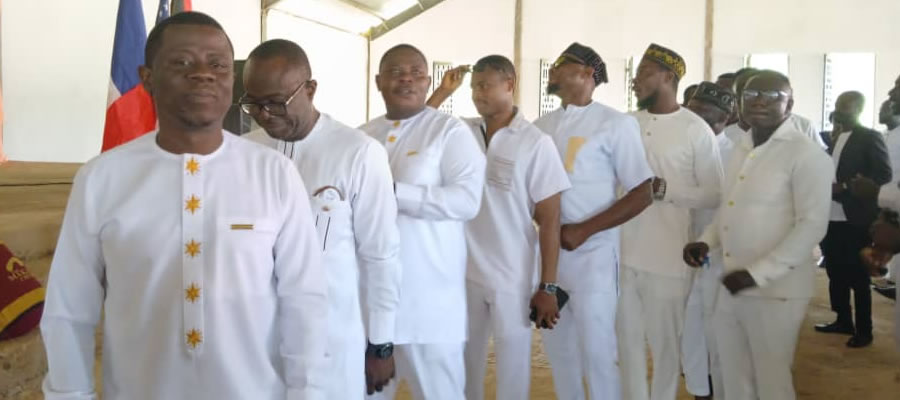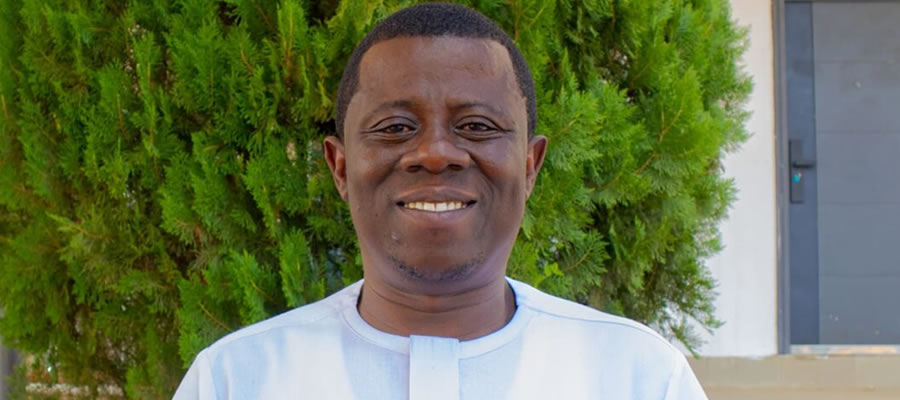

Political and Administrative Institutions
The Aowin Municipal Assembly was established in 1988 by the Local Government then (Aowin Suaman District Assembly) Instrument, L.I. 1392 under the Local Government Law 1988 P.N.D.C.L. 207 (now replaced by the Local Government Act 1993, Act 462).
The Municipal has one electoral constituency: Aowin, with 24 electoral areas. The Assembly is constituted by Twenty Four (24) elected assembly members, 10 government appointees, headed by appointed Municipal Chief Executive and a member of parliament.
The office of the Municipal Assembly is the secretariat or administrative wing of the Assembly with the Municipal Chief Executive as both the political and administrative head. Management of the Municipality is the responsibility of the executive committee of the Assembly with support from its statutory sub-committees established by the new local government system which include the following:
• Development Planning;
• Social Services;
• Works;
• Finance and Administration; and
• Justice and Security.
Other sub-committees formed by the Municipality include Environment and Agriculture, Business and Investment.
Day to day administration of the district is performed by the Central Administration (secretariat of the District Assembly) with technical guidance from the 11 decentralized departments. See figure 1.7 on the organizational structure of the Municipal Assembly.
As part of the district administrative structure there are one (1) town council and six (4) area councils; Enchi Town Council and Boinso, Yakasi, Achimfo and Adjoum, Area Councils. Apart from Enchi Town Council, Boinso and Adjoum which have permanent offices, the rest use rented office. All the Assembly lacked permanent staff to facilitate administrative function due to the Assembly’s lack of financial resources to employ staff for the town/area councils. The Assembly rather uses national service persons alongside volunteers from the council members to manage the offices. The Municipality has twenty (20) unit committees which have been largely in effective over the past years. The recent reduction of the number of unit committee members from 15 to (5) persons per unit is meant to make it relevant to the assembly concept. On the whole the sub-district structures are weak and their contribution to Municipal development has been insignificant.
Financial Administration
The Local Government Act, 1993, Act 462, part one, section 10 (3) (a) (ii) and part eight section 94 provide the legal basis for budgeting and revenue mobilization by the Assembly. Under the Act 462, part one section 10 (3), the Assembly has been empowered to formulate programmes and strategies for effective mobilization of human, fiscal and other resources in the Municipality. The Assembly is mandated to collect revenue and spend it to implement Municipal programmes.
It also stipulates that each District Assembly shall before the end of each financial year submit to the Regional Co-ordinating Council (RCC) a detailed budget for the district. Besides, the internally generated revenue the Assembly also receives grants from the central government known as District Assemblies’ Common Fund which was established by the District Assemblies Common Fund Act, 445, 1996. The District Development Facility (DDF) has also become a major source of revenue for the District over the last 3 years
Central Administration
The Central Administration of the Assembly, the Secretariat, is composed of units such as Personnel, Budgeting, Planning, Internal Auditing, Registry and Information Unit (Wireless Message). Heads of the respective units report to the District Coordinating Director who happens to be the most senior among all the unit heads. Together the staff works to implement the Assembly and national policies, programmes and projects
The District Planning Coordinating Unit
In order to assist the Executive Committee in its planning, programming and budgeting functions, a unit known as the District Planning Coordinating Unit has been set up to serve as a secretariat and to offer advisory services to the Assembly. The unit has the responsibility of collating data on the development activities in the district. It is also to promote research and ensure a smooth coordination between the activities of decentralized departments and the District Administration. The District Planning Co-ordinating Unit membership includes heads of department such as Education, Health, Agriculture, Works and Finance Department with the Chairman and secretary being the District Coordinating Director and the District Planning Officer respectively.
Other Decentralized Departments
There exist 11 decentralized departments who form an integral part of the district assembly concept. They provide technical and advisory functions on behalf of the Assembly in various fields. Departmental Annual Action Plans and reports are submitted to the Central Administration through the Hon. DCE. However some uncooperative attitude of some Departmental Heads really affects the harmonization of plans and as a matter entire planning process of the Assembly.
Other Government Institutions/Agents
District Magistrate Court
An important tenet of multi-party democracy is the rule of law. This demands the establishment of law courts and other quasi-legal organizations in the country, which will be accessible to people and at the same time, expedite action on criminal and civil cases to repose the confidence of the people. The Municipality has a Magistrate Court presided by a substantive Magistrate for effective and efficient adjudication of cases.
Commission on Human Rights and Administrative Justice
Also present in the Municipality is the office of the Commission on Human Rights and Administrative Justice. This quasi-legal institution complements the efforts of the Law Court. The CHRAJ has been provided with a good office space to enhance its activities. The unit is greatly engaged in other civil issues such as child maintenance thus contributing to the reduction of pressure on the magistrate court.
Immigration Service
The Municipal has the immigration service headquarters located at New Yakasi. An office has also been established within the Aowin Municipal Administration for the delivery of services to the people. Immigration duty posts are also dotted in all approved entry points from the Republic of La Cote D’Ivoire.
Customs, Excise and Preventive Service (CEPS)
The Customs, Excise and Preventive Service can also be found in the Municipality with their headquarters located in Dadieso, an adjourning District. CEPS have their operational points located in the District at New Yakasi, Omanpe, Appiahkrom near Boinso and Sewum. Their presence in the Municipality has helped to frustrate smuggling activities along the borders
Police Service
The Ghana Police Service is fully established in the Municipality ensuring peace and harmony and to also enforce law and other. The Municipal Headquarters of the Police service is located in Enchi with several operation points in communities such as Boinso and Jema.
The service is anticipating to establish more operational points mostly at border communities such as Sewu, Yiwabra Nkwanta and kordjour and to also facilitate the posting of more service men to complement the efforts of those at post.
Date Created : 11/17/2017 8:05:03 AM











 facebook
facebook
 X
X
 Youtube
Youtube
 instagram
instagram
 +233 593 831 280
+233 593 831 280 0800 430 430
0800 430 430 GPS: GE-231-4383
GPS: GE-231-4383 info@ghanadistricts.com
info@ghanadistricts.com Box GP1044, Accra, Ghana
Box GP1044, Accra, Ghana